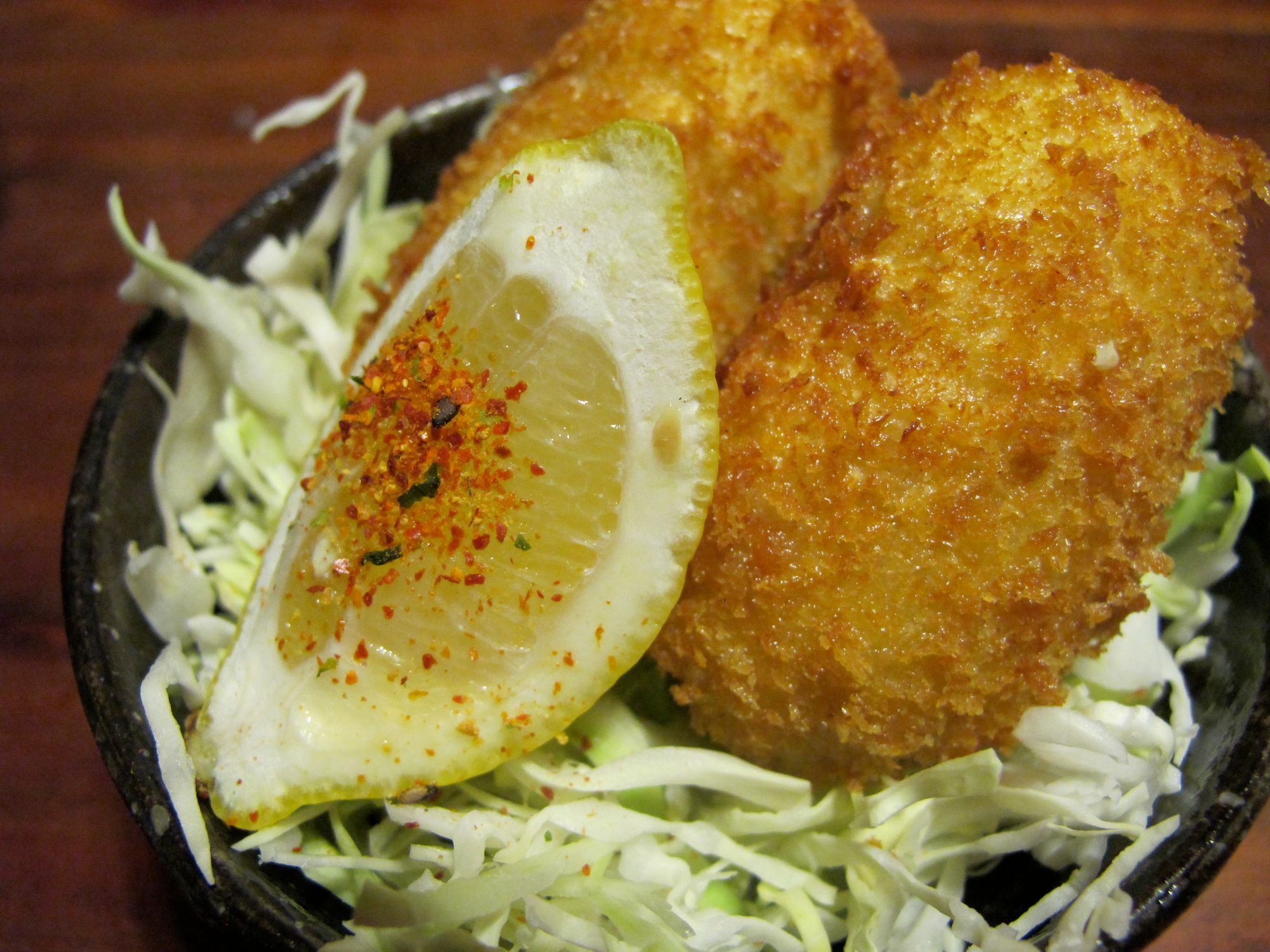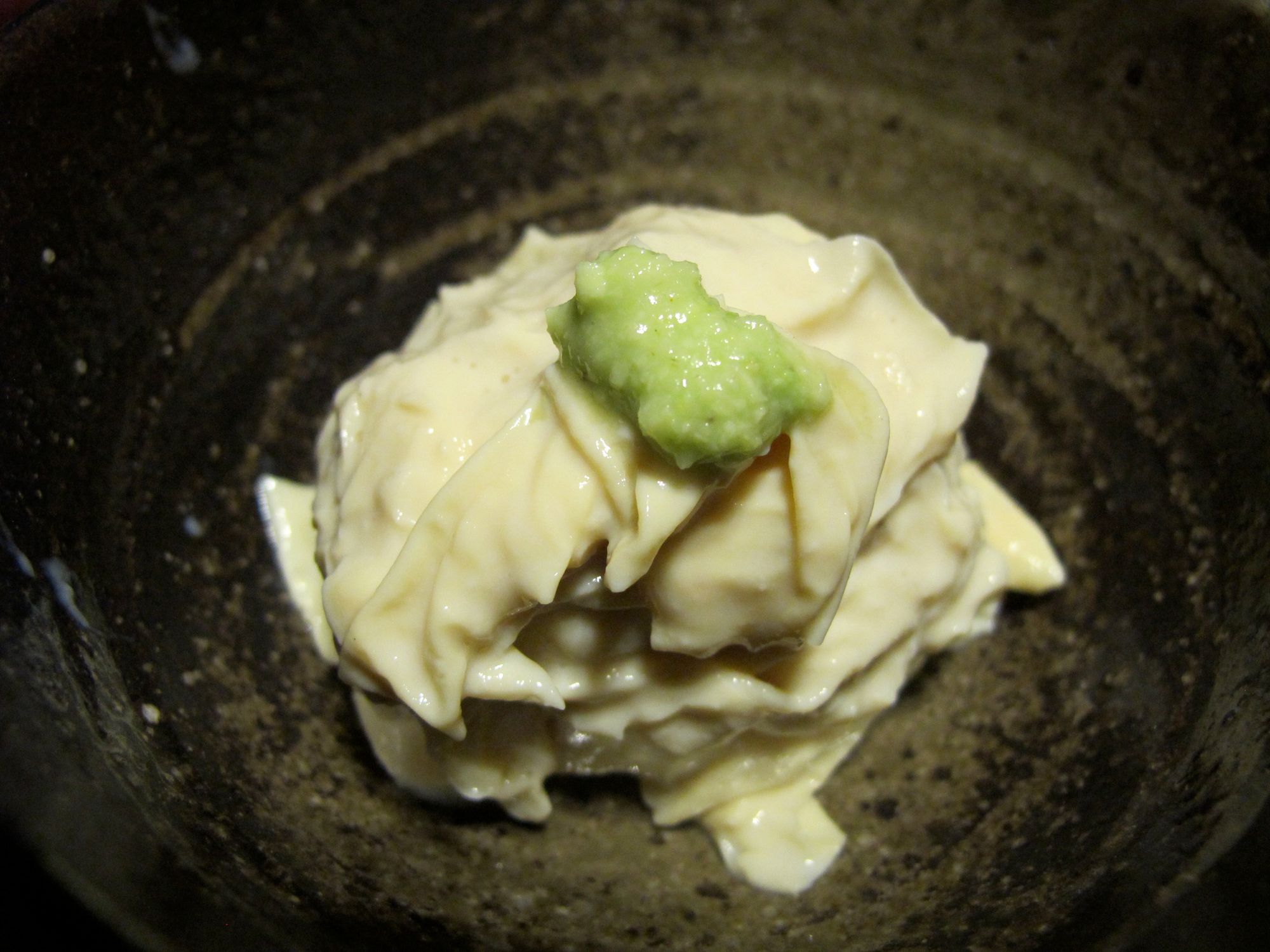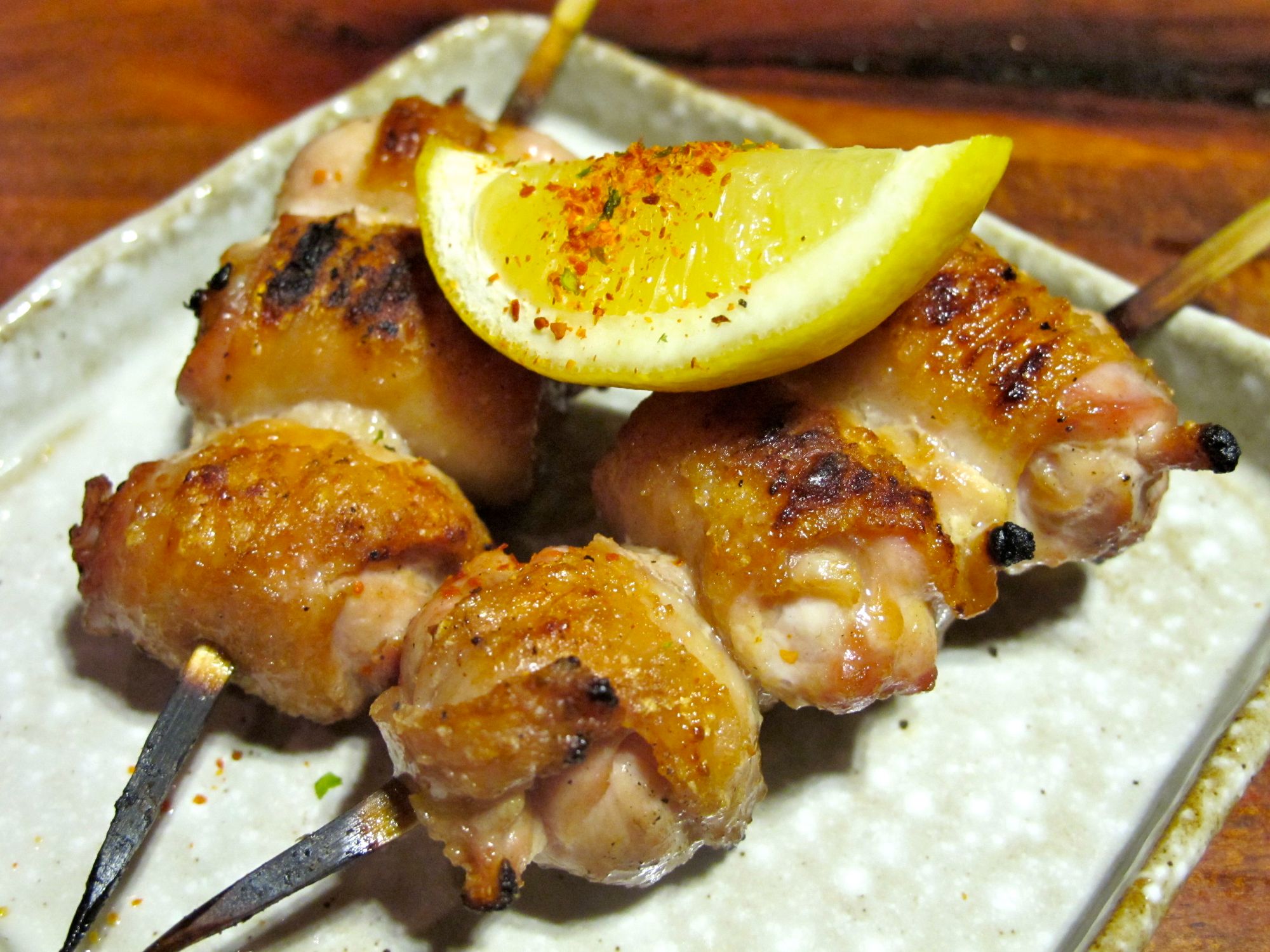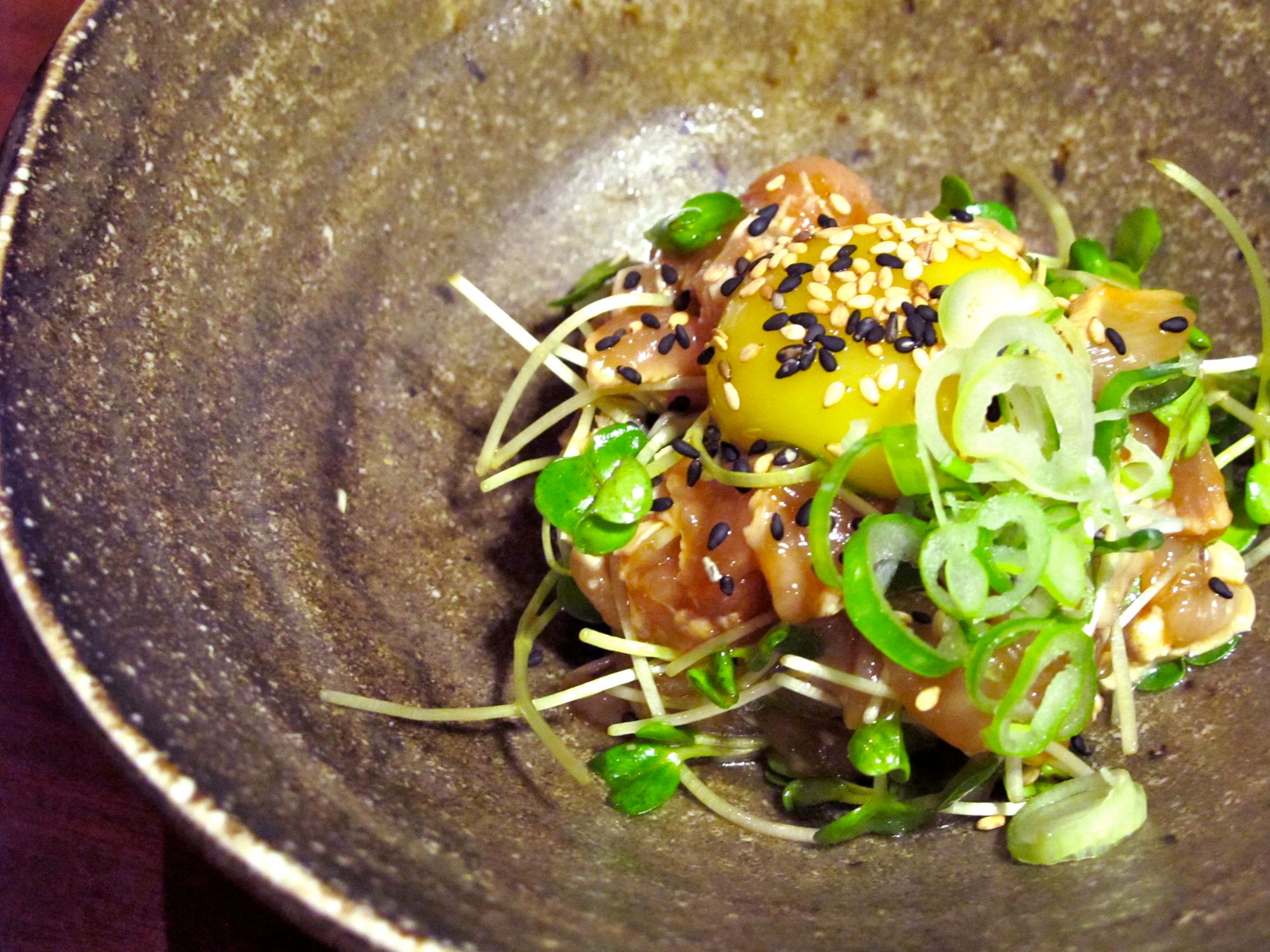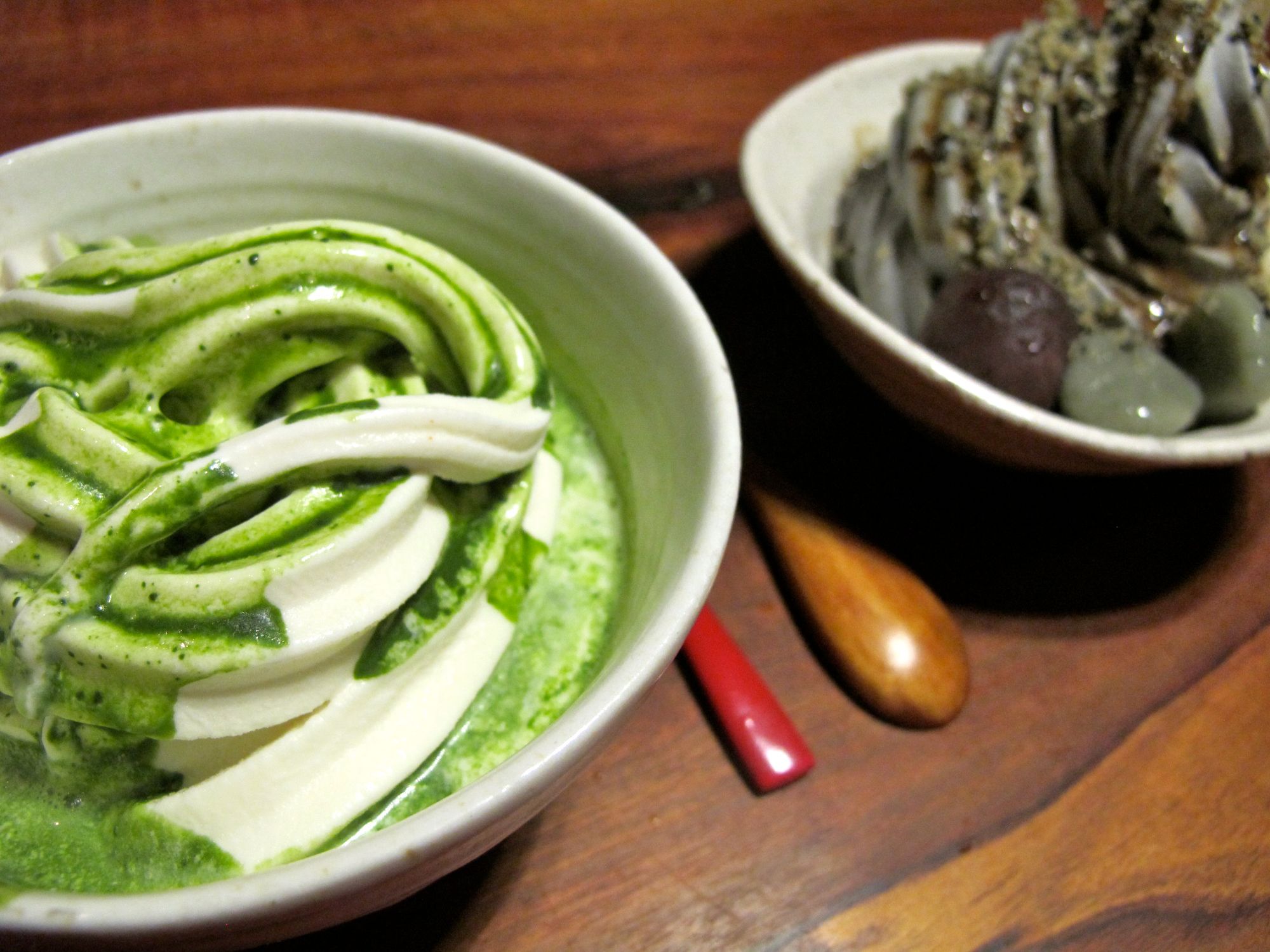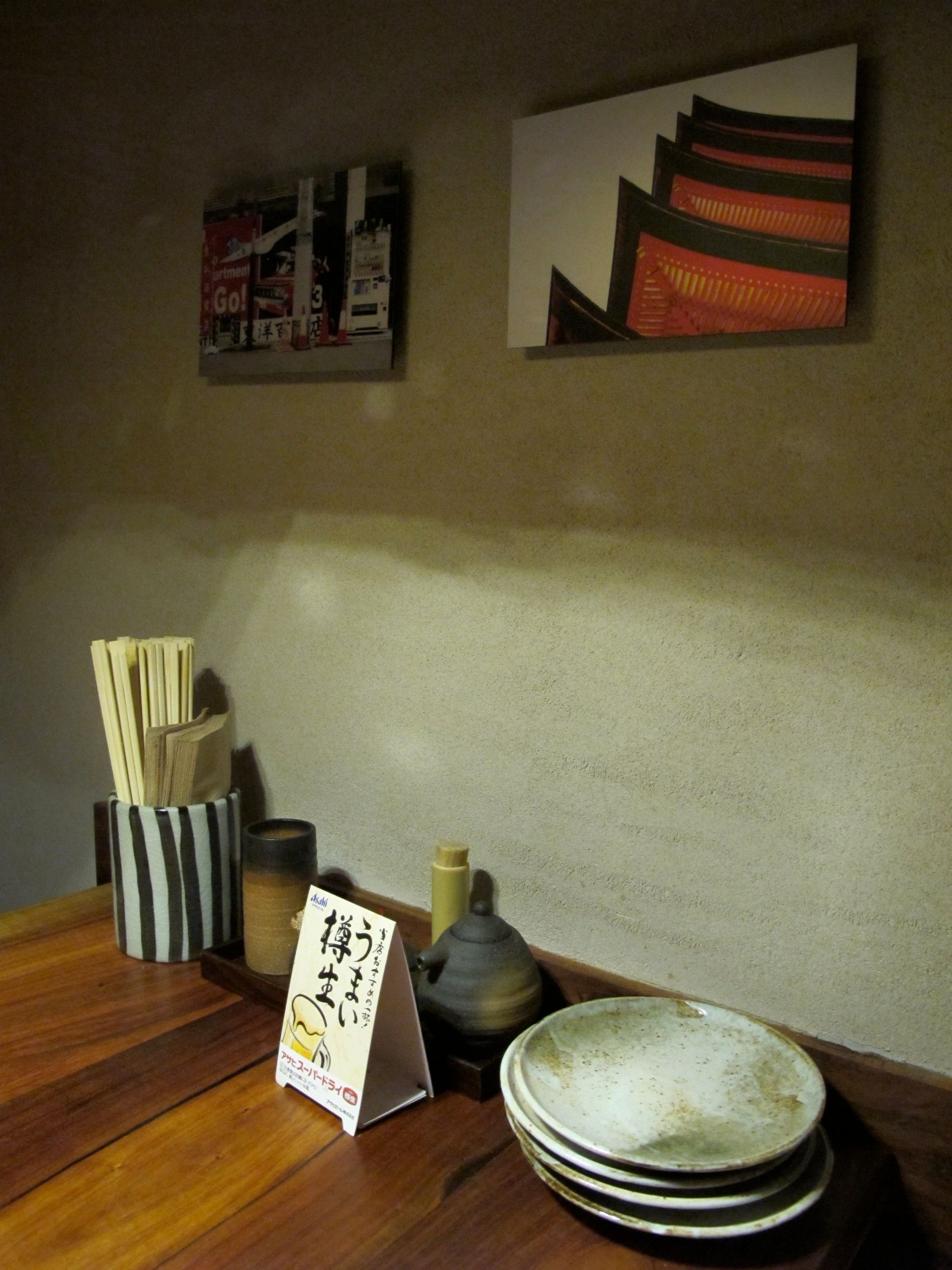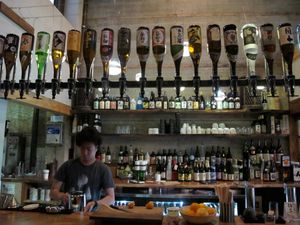You wanna know what’s cool? A gleaming shelf of 24 upside-down (full) bottles of shochu over a bar, poised and ready to get poured into a glass for you—that’s cool. Taking BART into Berkeley and having the restaurant only a block away from the stop—that’s definitely cool. And eating raw chicken? There’s a certain kind of cool to that as well (temperature-wise for sure)—more on that in a sec. With just one visit to IPPUKU in Berkeley, I was already seething with jealousy (well, not seething—maybe just strongly envious) of the 510 for having such a cool hangout.
Ippuku is an izakaya/yakitori joint with a unique rustic-urban style, a long space outfitted in wood and concrete walls, the picture of Japanese flair. As soon as you walk into the restaurant, you’ll smell the smoky notes from the grill in the back—and if you sit at the bar, you’ll be right up in it. There are also some fun side-by-side two-seater bench seats in the front that face the bar, sunken tables with pillows along the wall for larger parties, and smaller wood booths that handily have heaters under the tables for your legs (I want one of those for my desk at home). And just wait until you make your way to the spa-like bathroom. Three words: heated toilet seat.
So, you thirsty? Pay close attention to the alcohol levels listed by the sakes and shochus on the menu before you wonder why you’re getting toasted—for example, the 25% kokuto/black sugar shochu can catch up with you really quickly; yet another reason why I was glad I took BART. (Don’t be afraid to cut the shochus with a little drizzle of water.) Or you can just stick with some Asahi on draft, or bottled beers. The staff is happy to make recommendations, so don’t be intimidated. Ditto on the menu, which will have plenty of unfamiliar dishes, unless you’re a Tokyo pro.
We did some significant damage, but the menu items that really stuck out were the nasu/grilled eggplant ($5), creamy and smoky—punctuated further with the bonito flakes on top; the whole squid ($10), chopped into lightly chewy rings and served with a housemade mayonnaise topped with shichimi togarashi and fresh ginger on the side; delectable, housemade little one-biter Jidori chicken gyoza ($5) with crisp edges; and the crab korokke/croquettes ($9) really blew my mind, so rich, with a golden (and not oily) crisp exterior. We were also really taken with the custardy fresh nama yuba/tofu skin ($6), such a delicate and exquisite dish, with a dollop of wasabi on top (we admittedly added a few drops of the salty sauce that remained from our chicken gyoza plate—it was just too tasty).
I hope you like chicken, or are at least open to experiencing pieces of it beyond the breast and thigh, because bird is the word here. The quality chickens come from Gleason Ranch in Bodega and Soul Food Farm in Vacaville, and the kitchen takes care to use every single part—it’s quite amazing. The selection of different skewers (gushi) grilled over bincho-tan (white Japanese charcoal) that you can order ranges from salty ribbons of skin ($6) to the meaty, succulent thigh oyster ($7—it has limited availability, so don’t pass that one up), to neck, minced versions, all kinds. I say at least order three different skewers so you can do a chicken tour. Bwok. We also enjoyed the clean simplicity of the zosui/chicken and rice porridge ($6), a perfect cold night or “I’m sick and want my mommy” dish.
Now, for the infamous raw chicken dish. There’s been plenty of discussion about it, so I’ll let you decide for yourself whether you want to take the plunge or not. It’s handled with the utmost care. Personally, I really liked the dish ($9), the raw breast chopped into a kind of chunky tartare and topped with a raw quail egg (ooooh, danger!), soy sauce, sesame seeds, green onion, radish sprouts, and plenty of chile. It was creamy, and spicy, and we polished it off. And I didn’t get sick or die. The End.
Desserts here are some of my favorites I’ve had in Japanese restaurants: the black sesame soft-serve ice cream ($6) is inspired, served with petite mochi balls, anko (red/azuki bean paste), and ten-kasu (crunchy bits of tempura). Our cute red wooden spoons kept returning to the bright green matcha affogato with verve.
The staff is friendly, and they make excellent recommendations. But, service is also a bit laid back, so don’t expect your plates to be cleared immediately or your silverware to be replaced as expediently as you’d like (although the food comes out pretty quickly). The music feels personal, with Belle and Sebastian playing off someone’s playlist. Chef-owner Christian Geideman, working with master temple builder Paul Discoe, have created a special space, one that I’d hang out at a lot if it was closer. The room might have a lot of activity and buzz, but it’s so visually calming—and the simplicity of the flavors really leaves you feeling both nourished and restored at the end. Honestly, I was ready to just return with my toothbrush and move in. The bar (and its gleaming shochu rack).
